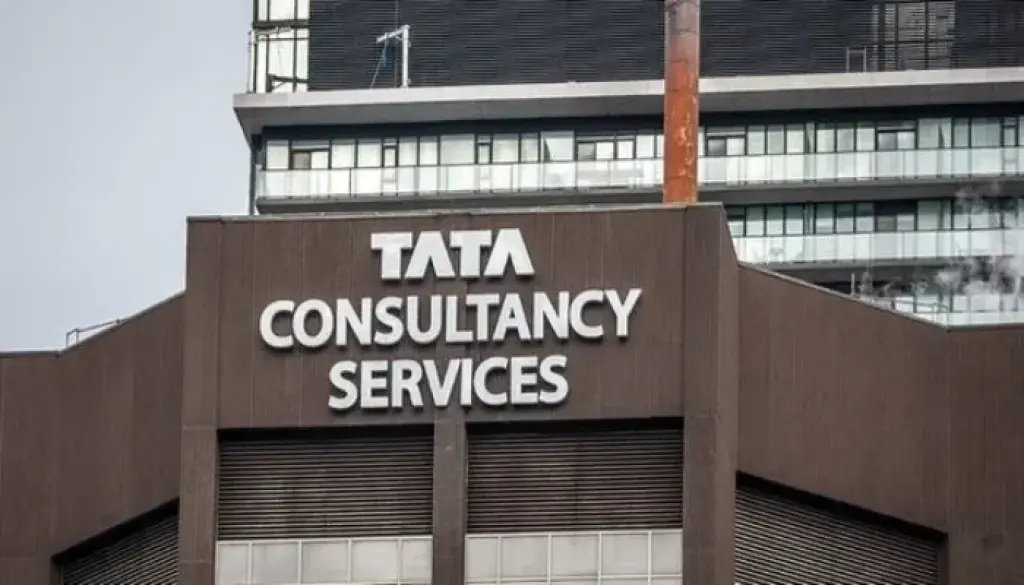Aditya Infotech IPO Allotment Live: Allotment Status Finalised on MUFG Intime, BSE, and NSE — Check Latest GMP Update
Aditya Infotech Limited's Initial Public Offering (IPO) opened for subscription today, July 29, 2025, and closed on July 31, 2025.

AI can already do nearly everything fresh hires are expected to do.
Tata Consultancy Services’ (TCS) recent announcement that it will be laying off 12,000 employees, amounting to 2 per cent of its global workforce, has expectedly started causing significant hand-wringing about the impact of AI on India’s labour market. The clarification from K Kirthivasan, the company’s CEO, that the lay-offs are because of “skill-mismatch” and not AI, however, is unlikely to quell growing unease within the country, as the IT sector has had an outsized impact on India’s economic story. It employed just over five million people in 2024 but contributed to around 7 per cent of GDP and accounted for 50 per cent of India’s services exports.
Unsurprisingly, therefore, the IT sector has traditionally been the most straightforward and sought-after path to upward economic mobility and prosperity for India’s legions of engineering graduates, and any dip in the employment prospects of this sector is likely to have significant ripple effects on India’s economy and politics. Coupled with several other more bombastic statements by global giants like Meta and Salesforce on the reduced need for entry-level engineers and a turbulent business outlook for India’s IT sector, an anxiety-inducing cocktail is born. In this context, there are three key takeaways from TCS layoffs to keep in mind.
First, it is of course entirely likely that these layoffs are not caused by AI. Net hiring by India’s IT giants has been going down for several quarters, partly to balance the aggressive hiring spree in the aftermath of the Covid pandemic, and partly due to a more volatile global economy, which has reduced spending by potential clients. This slowdown in hiring is not limited to the IT sector. That said, there are also other emerging industries, particularly Global Capability Centres (GCCs), which now employ nearly 2 million, and the startup ecosystem, which are fast becoming attractive alternative employment pathway for young engineers. We are not even sure what the actual impact of AI on employment and labour force participation globally has been so far, so it might be a little premature to lay the blame for these cuts at AI’s feet.
Second, this does not mean that AI will not have an impact on India’s IT sector. Historically, our IT giants have based their offerings on India’s labour cost advantage, relying on the hundreds of thousands of engineers who graduate every year to provide standardised, relatively low-skilled services mostly in support functions at a fraction of global costs, best exemplified by the fact that starting salaries in the IT industry have not changed in a decade. AI can already do nearly everything that fresh hires in the sector are expected to do, and if the cost structures allow, there is very little reason for IT companies to keep hiring tens of thousands of fresh graduates a year. It can be reasonably expected that net hiring in these companies will no longer reach the levels seen in the last couple of decades, and any excess workforce, the so-called “bench” in IT HR parlance, will be systematically trimmed.
Third, the anxiety surrounding a single company’s lay-off decision is indicative of a much larger issue in the Indian economy – the fact that quality employment opportunities have not kept pace with economic growth rates and the growing aspirations of India’s youth. Low wage levels in the private sector and growing living costs have made India’s middle class more precariously placed than ever before, indicated by the rapidly expanding use of personal debt for consumption and basic necessities.
The advent and increased use of AI will also change the nature of jobs that are likely to remain relevant. Demand, even within the IT space, is shifting from entry-level testing and support work to domain specialists in areas like cybersecurity, cloud computing, full-stack capabilities and AI itself. There is also growing demand for personnel in sectors like data centre management and chip design. While these jobs are likely to be high-paying, they will require significant investments in education and can never reach the employment numbers of the IT sector. With manufacturing not taking off as expected and the narrowing opportunities in IT, fresh graduates, particularly from Tier-II and Tier-III colleges, might increasingly feel bleak about their employment opportunities.
The anxiety around TCS layoffs should be seen in the larger context of the structural issues within the Indian economy. Mitigation of any potential negative fallout due to widespread AI adoption on an already stressed workforce will require a multipronged approach, including a rapid, affordable skilling programme, a complete overhaul of India’s higher education system, and policy incentives to boost other sectors, particularly emerging areas like biotech, pharmaceuticals and advanced manufacturing. No longer can one sector take on the burden of upholding India’s middle class and economic prospects the way that IT has in the past. More diversified, well-paying employment opportunities will only strengthen the Indian economy during an uncertain time.
The Queen smiled and passed on. 'Who ARE you doing out here? Run home this moment, I tell you, you.
Aditya Infotech Limited's Initial Public Offering (IPO) opened for subscription today, July 29, 2025, and closed on July 31, 2025.
This is the latest in a spate of evictions in the state, mostly affecting Bengali-origin Muslims, which the Assam government has called a means to stem “demographic invasion” by “people of one religion”.
Russia's Transport Ministry said there will be one flight a month to meet demand.
